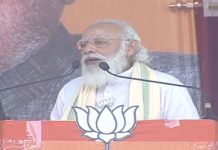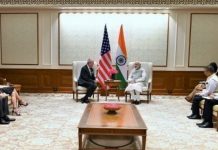
Photo: Vijay Pandey
EDITED EXCERPTS FROM AN INTERVIEW
You have argued that Swami Vivekananda created the foundational basis for political Hindutva. Few have had the courage to do that. Why is there a reluctance in the political classes to name Swami Vivekananda?
Because the hit list of the political class is longer than their reading list. What I have written about Swami Vivekananda is not something that I found in some dusty attic. For Rs 700, you can buy seven volumes of Vivekananda’s collected works. He was very much against untouchability. But he was also a radically empathetic proponent of re-establishing the caste system. In his conversation with a disciple, he says the Dalits should be taught the Bhagwat Gita and Sanskrit so that they learn to respect Brahmins and the upper castes better. The disciple asks, what if the Dalits become the intellectual equals of the Brahmins? Vivekananda says, “You really don’t understand the issue. Once the Dalits understand their place, the sweeper will sweep better, the cobbler will make better shoes.”
You have also written about Mahatma Gandhi, who too was often accused of inconsistencies. Where would you place his Hinduism?
I find a lot of Gandhi’s positions deeply problematic. But we still need the Gandhi myth to counter Hindutva. That is a political project. Politics is about myths, not number crunching as it has become today. And the most potent myth against the likes of Modi is still the Gandhian myth.
Do the youth identify with Hindutva politics?
Modi’s so-called transformational and development plank is really a middle-class version of what the young want. The young are disillusioned, disenchanted and impatient, and rightly so. And this entire development, progress, India-as-superpower, all these things, in a sense, are a secularised version of that very idea that impregnates Hindutva — a great Indian nation. Of course, nobody discusses within the Hindutva project, as nobody discusses within the developmental plank, what are the values that people will accept in common once development happens or once the Hindu rashtra happens.
Is there any punch left in the Ayodhya issue?
Political parties will do whatever they have to, especially if they are guided by religious ideologies, to polarise the electorate. Whether it has any currency left is for the voters to decide. After all, Ayodhya voted for a CPI MP not very long ago.








